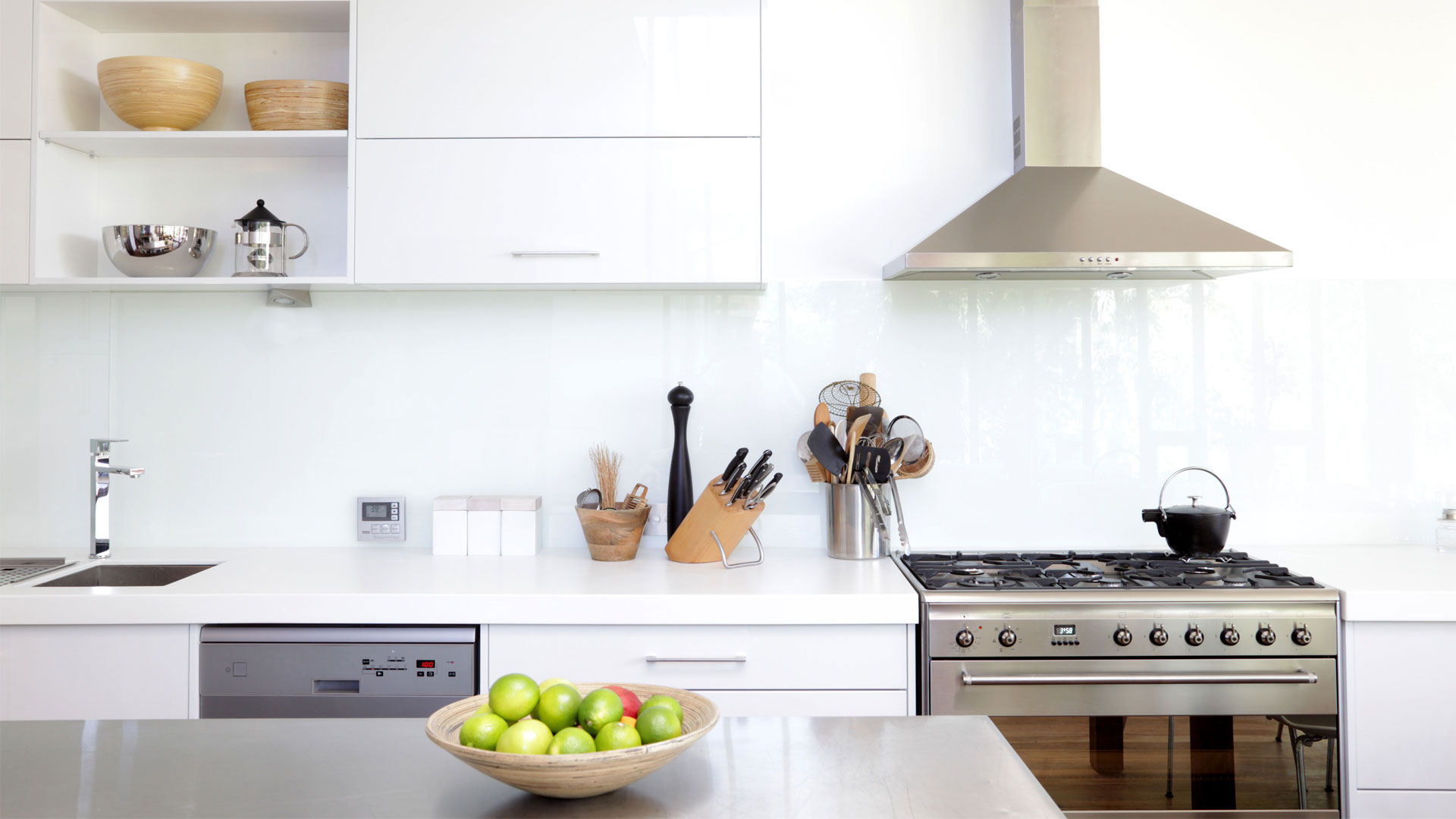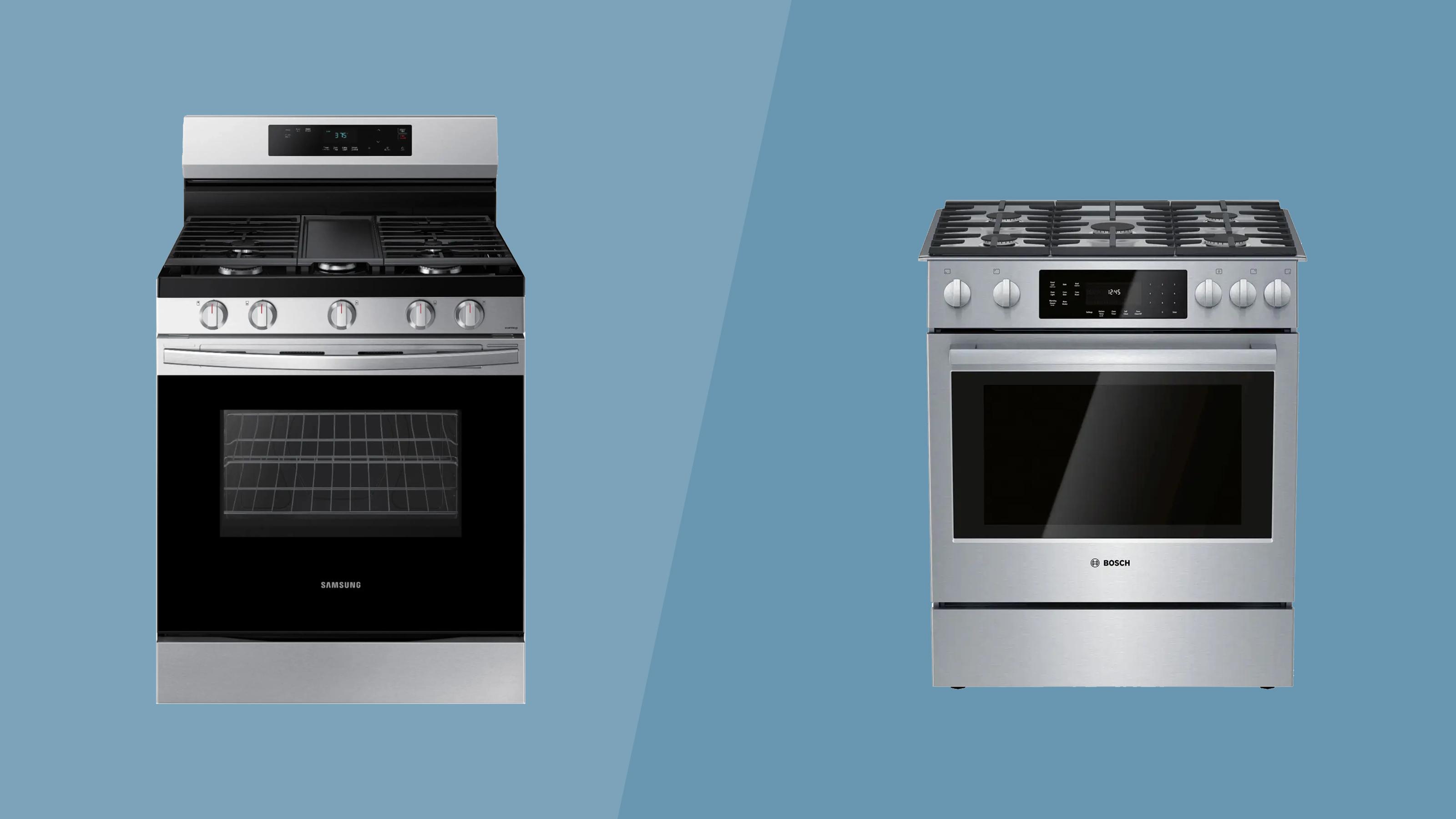Many people face a dilemma when choosing between gas and electric ranges. Whether you already prefer one over the other, it's crucial to understand the pros and cons associated with both before investing. This article explores the long-standing debate between electric and gas ranges by highlighting crucial differences in performance, including heat control, cooking speed, and energy efficiency.
You should compare gas and electric models' performance, maintenance needs, and costs. Many electric ranges are cheaper upfront than gas ones and often come equipped with cool features. These features can increase the price but also provide significant advantages, like versatility, so you can cook like an air fryer.
Your choice between gas and electricity may also depend on what you cook most often and what you like to cook. Knowing which ranges professional chefs favor can give you a lot of insight. If you make an informed choice, you'll get an appliance that fits your cooking needs and enhances your kitchen experience.
Electric range vs gas: Price & value
- Electric ranges are generally more affordable upfront and easier to install.
- Gas ranges are more expensive but offer superior heat control and cooking performance for serious cooks.
When choosing between an electric and gas range, price and value are crucial factors that can greatly influence your decision. Knowing how much each option costs can help you make a more informed decision.
Electric ranges tend to be cheaper upfront compared to gas ranges. Electric ranges usually cost $500 (like this GE 5.0 Cu. Ft. Freestanding Electric Range) to $1,500 (like this Whirlpool 4.8 Cu. Ft. Slide-In Electric Range). In contrast, gas ranges cost $800 (like this Samsung 6.0 cu. ft. Freestanding Gas Range) and $2,000 or more (like this Bosch 800 Series 4.8 Cu. Ft. Slide-In Gas Convection Range), depending on the brand and features. An electric range might be cheaper if you're on a tight budget.
In addition to installation costs, gas ranges require a gas line and proper ventilation, so if your kitchen's not already set up for gas cooking, it can add to the overall expense. If you're trying to save money, gas ranges aren't worth it. On the other hand, electric ranges can be easier to install and may only need a dedicated outlet.
Especially if you're a serious cook, gas ranges might offer better performance long-term in terms of heat control and cooking speed. They heat up fast and adjust the flame instantly, so you can cook more precisely. However, electric ranges have become increasingly efficient, with many models featuring induction technology that cooks food quickly and evenly while being energy-efficient.
Electric range vs gas: Features & functions
- Electric ranges offer sleek controls and induction cooking for efficiency.
- Gas ranges provide manual ignition and versatile broiling options for enhanced cooking flexibility.
Most electric ranges feature a simple dial system that lets you easily select your desired temperature and cooking function. Some even feature touch buttons for a sleek, contemporary look. Using induction technology, electric ranges heat cookware directly with magnetic fields, resulting in quicker cooking times and less energy consumption.
One of the most impressive things about electric ranges is that they use induction technology. Electric ranges, however, rely entirely on electricity, so if there's a power outage, you can't cook.
In contrast, gas ranges have more advantages. Although they need an igniter (which can be electric), they can still be lit manually if there's a power outage, so they're a good choice for people who need to cook in an emergency. Usually, when you're using a gas range, you just press the ignition button and then choose the heat setting so you can adjust the flame right away.
Gas ranges often have a broiler, which provides high heat for browning and crisping food, which is great for sautéing and simmering.

Electric range vs gas: Performance
- Electric ranges offer even heat and superior baking results.
- Gas ranges heat quickly but require more effort to maintain uniform cooking.
Electric ranges can be a bit slower when it comes to warming up, but once they’re hot, they provide great, even heat across the whole range. Gas ranges might warm up fast, but because they work by using a flame, there isn’t consistent heat in the ranges. Gas ranges will be hottest at the top due to the heat rising, but you can also use the bottom of the range to create a crisp finish for your dishes. This doesn’t mean, however, that all food will be unevenly cooked in a gas range. Instead, you’ll need to make more effort to rotate your roasting trays and move food up and down in the range to cook everything simultaneously.
Electric ranges, especially those with convection technology, provide more even heat across the whole range. Convection works by circulating the heated air around the range so that all sides of your food are evenly cooked. This feature is also great for creating crispy potatoes. Electric ovens are also our winner when it comes to baking cakes. That’s because the heat is more even, and you won’t end up with one side of your cake cooked more.

Electric range vs gas: which is better?
Both electric and gas ranges have their strengths when it comes to cooking. Electric ranges are easy to use and use with straightforward dials or touch buttons, and they use induction technology to cook quickly and efficiently. Electric ranges, however, are entirely dependent on electricity, so you can't cook during a power outage. Gas ranges, on the other hand, can be manually ignited during outages, so they can be used in emergencies.
Gas ranges heat up faster, but the flames can create uneven temperatures, so you have to be careful where you place dishes and rotate them. Convection ranges, especially those with convection, are great for baking and cooking perfectly.

